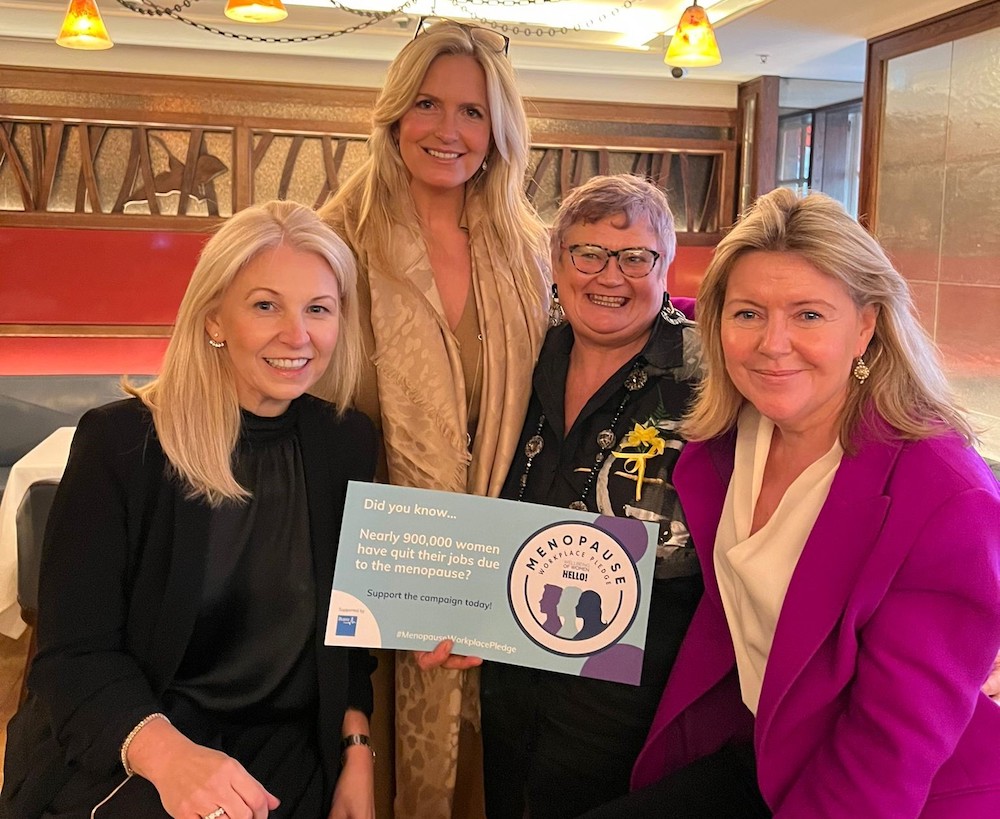
Article provided by Laurie Padua, Managing Director, Advisory, AMS
Females going through this change often need additional support from their workplace, but few businesses know how to approach this subject. From appropriate considerations of uniform styles to dedicated menopause policies, there are a number of ways that a firm can help female employees – and organisations that get it right stand the best chance of retaining access to this valuable talent pool.
Across the UK’s financial services sector, women are the fastest growing demographic, making up 45% of the one million strong workforce. However, females make up less than a third of senior leadership roles across the industry. This can, at least in part, be explained by the fact that women over 50 account for just 13% of the entire UK workforce. And one in 10 women leave the workforce at or before 50 simply because they cannot continue to work.
It’s important to add that the low levels of female representation at senior level – and the high volume of women who leave work before they hit 50 – cannot be directly attributed to menopause, at least there’s no concrete statistics yet available to demonstrate this link. However, we do know that this transition typically occurs between 45 and 55 years of age and can be emotionally challenging for many. It can also cause uncomfortable physical changes such as hot flushes, poor concentration, and tiredness. Despite the fact it is something that around half the population will directly experience at some time in their lives, it is rarely openly discussed outside of tight social circles.
For those experiencing symptoms it can be a difficult and stressful time. Everyone will experience the menopause differently and for some, symptoms can be quite severe and can affect people both physically and mentally. The reality is that menopause also often coincides with the point that women are on track to hit the peak of their careers. With this in mind, now is the time for business leaders to talk openly, positively, and respectfully about the menopause.

On the day, keynote speakers including MP Carolyn Harris, TV presenter and menopause activist Penny Lancaster, and founder and Chair of AMS, Rosaleen Blair CBE, joined me to share personal journeys of the menopause. We also discussed guidance designed to help businesses better support women at this unique time of their lives.
There was a general consensus that business leaders must identify practical ways to help their employees navigate this unfamiliar and often unnerving stage. For example, by making sure staff uniforms are breathable and not restrictive, ensuring that restrooms are always accessible, and offering signposting to expert external support. Businesses must also create a safe place for women who may not feel comfortable speaking openly about the changes they are experiencing if they are to retain valuable – often senior – female talent who are in the later stages of their careers.
It is worth noting that the menopause is not a specific protected characteristic under the Equality Act 2010. However, if an employee or worker is put at a disadvantage and treated less favourably because of their menopause symptoms, this could be discrimination if related to a protected characteristic, for example: age, disability, gender reassignment or sex. Aside from a potential legal requirement to support women living with menopause, though, businesses should be actively exploring how to best take care of this segment of the workforce for the benefit of individuals and the wider business alike.
The Trades Union Congress (TUC) advises that procedures around sickness absence should make it clear that there’s flexibility around menopause-related issues – and that being flexible with start times can also help if women are finding it hard to sleep. The federation also recommends that employers should ensure that all line managers have been trained to be aware of how the menopause can affect women and what adjustments may be necessary to support them.
Similarly, the Advisory, Conciliation and Arbitration Service (Acas) points out that although the menopause will only be experienced by women and other people who have a menstrual cycle, men should also be included in conversations and training. This is because they might be supporting others going through it. The organisation also advises that supporting and creating a positive and open environment between an employer and someone affected by the menopause can help prevent the person from losing confidence in their skills and abilities; feeling like they need to take time off work and hide the reasons for it; having increased mental health conditions such as stress, anxiety and depression; or even leaving their job.
Acas has a wealth of information relating to menopause and the workplace online. Organisations which need extra help in supporting females who are experiencing menopause symptoms can also access useful resources provided by the Institute of Leadership and Management and the Chartered Institute of Professionals and Development (CIPD).
With recent figures suggesting that 250,000 over 50s have already prematurely dropped out of the workforce since the pandemic, retaining experienced workers has never been more vital. By effectively supporting women in the latter part of their careers when they inevitably experience the menopause, firms can stand the best chance of retaining – and maximising the potential of – these valuable, knowledgeable individuals.
 About the author
About the authorLaurie’s role is global and diverse in nature as Managing Director of Talent Advisory Services at AMS.
With over 20 years’ experience in talent acquisition across agency, in-house, RPO and consulting environments, Laurie leads a team of over 350 highly skilled subject matter experts delivering consulting, implementation and training solutions to over 100 multi-national organisations across more than 80 countries globally.
